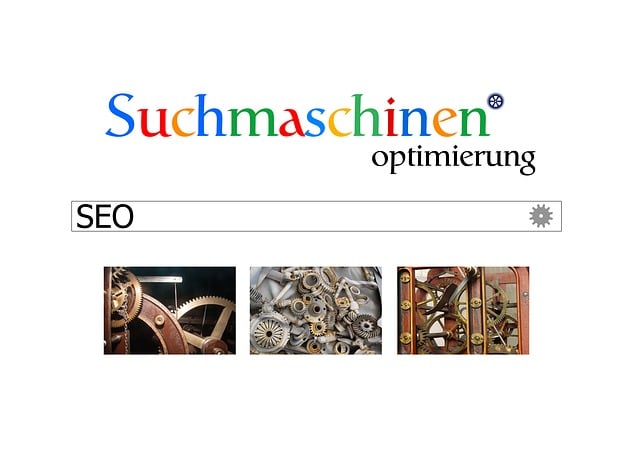SEO certification programs equip digital marketers with the skills to thrive in a competitive online environment by providing a structured understanding of algorithm updates, keyword research, on-page and off-page optimization, analytics, content strategy, mobile indexing, local SEO, and more. Successful programs combine theoretical knowledge with hands-on activities, case studies, and real-world projects using essential tools like Google Search Console, Google Analytics, Ahrefs, SEMrush, Moz, Screaming Frog, and Yoast SEO. Earning this certification enhances career prospects, boosts website visibility, drives organic traffic, and contributes to business success in the digital realm. Choose a program aligned with your skill level and goals, focusing on comprehensive curricula, proven education quality, and instructor experience. Evaluate program impact through KPIs like search rankings, organic traffic, and conversion rates to assess its long-term benefits.
In today’s digital landscape, understanding SEO certification is crucial for digital marketers aiming to stay ahead. This article explores why an SEO certification matters and breaks down key components of a comprehensive program. We dive into popular SEO tools and resources to boost your skills, uncovering the benefits of earning such certification for your career. Furthermore, we provide insights on choosing the right course and measuring success in implementing learned strategies.
Understanding SEO Certification: Why It Matters for Digital Marketers

SEO certification programs have become a cornerstone in the digital marketing landscape, offering professionals a structured path to enhance their skills and stay ahead of the ever-evolving search engine optimization landscape. This certification matters greatly for digital marketers because it validates their expertise and demonstrates a commitment to delivering top-notch SEO services.
With the competitive nature of online spaces, having an SEO Certification Program under your belt can set you apart from peers. It equips marketers with a deep understanding of algorithm updates, keyword research techniques, on-page optimization strategies, and off-page signaling — all vital elements for driving organic traffic and improving search rankings. This knowledge enables professionals to make data-driven decisions, create effective content strategies, and ultimately help businesses thrive in the digital realm.
Key Components of a Comprehensive SEO Certification Program

A comprehensive SEO Certification Program should be designed to equip participants with a deep understanding of search engine optimization’s ever-evolving landscape. Key components include an in-depth exploration of on-page and off-page optimization techniques, keyword research methodologies, and analytics tools for measuring performance. These programs often delve into essential topics like content strategy, mobile-first indexing, local SEO, and the latest algorithm updates, ensuring graduates are well-versed in both traditional and cutting-edge practices.
Additionally, a robust curriculum should emphasize practical implementation. Hands-on exercises, case studies, and real-world projects allow candidates to apply their knowledge. Interactive workshops featuring industry experts provide valuable insights into current trends and challenges, fostering a dynamic learning environment. Ultimately, an effective SEO Certification Program combines theoretical knowledge with practical skills, preparing individuals to excel in the dynamic field of search engine optimization.
Popular SEO Tools and Resources for Boosting Your Skills

In today’s digital landscape, a robust SEO Certification Program is an indispensable asset for anyone looking to boost their online visibility and rankings. One of the first steps in this journey involves familiarizing yourself with popular SEO tools that are widely recognized in the industry. Google Search Console and Google Analytics top the list as fundamental resources, offering insights into keyword performance, site traffic, and user behaviour. These tools empower marketers and webmasters to make data-driven decisions and optimize their content for better search engine results.
Beyond these essentials, a variety of other specialized SEO tools have emerged to cater to specific needs. Ahrefs and SEMrush are popular choices for backlink analysis and keyword research, respectively. Other notable mentions include Moz for on-page optimization, Screaming Frog for technical SEO audits, and Yoast SEO for content optimization. Leveraging these tools in conjunction with a comprehensive SEO Certification Program can significantly enhance your skills, enabling you to navigate the complex digital landscape with confidence and deliver exceptional results.
The Benefits of Earning an SEO Certification for Your Career

Earning an SEO Certification can significantly enhance your career prospects in the digital marketing realm. It demonstrates a comprehensive understanding of search engine optimization strategies, equipping professionals with the skills to navigate the ever-evolving digital landscape. This certification becomes a powerful tool to stand out from the competition, as it showcases your expertise and commitment to staying ahead in the industry.
The benefits extend beyond personal growth; employers seek candidates with proven SEO knowledge. An SEO Certification Program provides practical insights into optimizing content, technical site improvements, and link-building strategies. By acquiring these skills, professionals can contribute to enhancing a website’s visibility, driving organic traffic, and ultimately, improving online business performance.
Choosing the Right SEO Certification Course: Factors to Consider

When selecting an SEO Certification Program, several key factors come into play. Firstly, consider your learning goals and career aspirations; different courses cater to various levels of expertise, from beginners to advanced practitioners. Choose a program that aligns with your current skill set and future objectives. Secondly, evaluate the curriculum and teaching methods. Look for comprehensive coverage of essential SEO topics, including on-page optimization, keyword research, link building, and analytics. Additionally, consider the reputation of the training provider; opt for recognized institutions or industry leaders known for delivering high-quality education.
The quality of instructors is another vital aspect. Engaging with experienced professionals who have hands-on expertise in SEO can significantly enhance your learning experience. Check reviews from past students to gauge their satisfaction and the value they derived from the course. Furthermore, consider the format of the program—whether online, in-person, or a hybrid model—that best suits your schedule and learning preferences.
Measuring Success: Evaluating the Impact of SEO Certification on Your Strategy

When considering an SEO Certification Program, evaluating its impact on your strategy is crucial. Success isn’t merely about acquiring a certificate; it’s about measuring concrete improvements in search rankings, organic traffic, and conversion rates. By comparing key performance indicators (KPIs) before and after the certification, you can gauge the effectiveness of the program. Look for increased visibility on search engines, improved user experience, and better alignment with industry best practices as signs of a successful SEO Certification.
Additionally, consider the long-term benefits such as enhanced knowledge retention among your team members, enabling them to maintain and enhance your website’s SEO performance independently. A well-executed SEO Certification Program should empower your team to navigate the ever-evolving landscape of search engine algorithms, ensuring your website remains competitive and relevant in the digital space.
